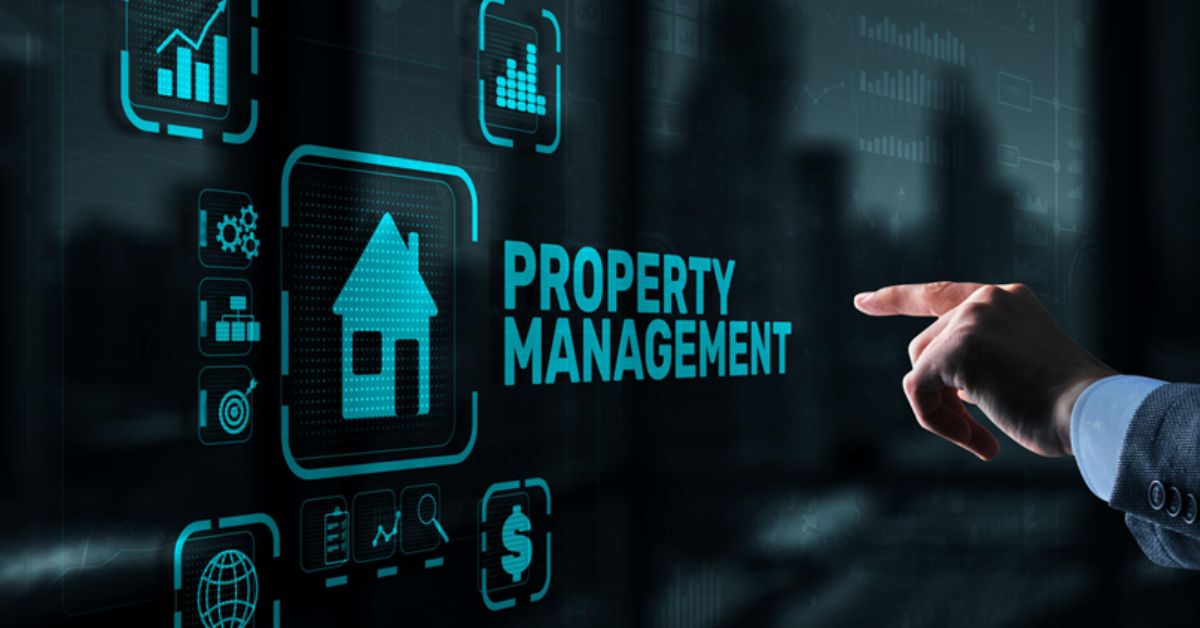REAL ESTATE
How Can You Get the Roof Installed to Boost Your Home Value in Massachusetts?

A roof upgrade can be one of the most effective investments for boosting property value. In Massachusetts, weather conditions can be unpredictable, so having a durable, well-installed roof is crucial. But how can you ensure that your new roof enhances your home’s appearance and market price? Let’s explore how installing the right shade can make a difference.
Why Roofing is a Top Tip to Increase Massachusetts Home Value
Investing in a high-quality shade is the best tip for increasing Massachusetts home value. Potential buyers and appraisers pay close attention to the roof’s condition when determining a home’s overall value. A new or well-maintained roof improves the home’s curb appeal and signals buyers that they won’t have to worry about costly repairs shortly.
A durable shade designed to withstand Massachusetts’ harsh winters and heavy rains can also add peace of mind for you and future buyers. Roofs made of metal, slate, or high-quality shingles can dramatically enhance your home’s resale value.
Choose the Right Roofing Material
Selecting the material for your roof is vital to boosting your home’s value. In Massachusetts, homeowners must choose materials that endure extreme weather conditions, such as snowstorms, rain, and high winds. Durable options like metal, slate, or architectural shingles are long-lasting and offer excellent insulation.
Each material has advantages and price points, so it’s essential to consult with roofing experts to find the best fit for your budget and aesthetic preferences. Remember that energy-efficient roofing materials can also increase your home’s value by lowering utility costs.
Prioritize Curb Appeal
A well-installed roof can significantly improve your home’s curb appeal. Curb appeal is crucial in real estate because it’s the first impression a buyer gets when they approach your property. A clean, modern shade can completely transform your home’s appearance, making it stand out in the neighborhood.
Choosing roofing materials that complement your home’s architectural style can create a cohesive and attractive exterior. This attention to detail not only increases marketability but also boosts the perceived value of the house.
Ensure Proper Installation by Professionals
Even the highest-quality roofing materials will only provide value if installed correctly. Hiring professional roofers ensures your roof is installed according to industry standards and local building codes. A poorly installed shade can lead to leaks, structural damage, and expensive repairs down the road.
Proper installation is vital in Massachusetts, where the weather can cause wear and tear on your home. Skilled roofing professionals guarantee that your investment will pay off in aesthetics and durability.
Consider Energy Efficiency Upgrades
Adding energy-efficient features to your shade can further increase your home’s value. Roofs with reflective coatings, proper insulation, or even solar panels can lower energy bills. This is because it keeps your home cooler in the summer and warmer in the winter.
Buyers are looking for homes that reduce their carbon footprint, and energy-efficient roofing is a great selling point. Not only will you save money on energy costs, but these upgrades can qualify you for tax credits, adding further value to your investment.
Investing in a professionally installed, high-quality roof is a practical tip to increase Massachusetts home value. Selecting durable materials, enhancing energy efficiency, and ensuring proper installation can significantly improve your home’s market appeal and long-term value. Whether you want to sell or improve your property, a new roof is a worthwhile investment for any homeowner.
REAL ESTATE
Unlock Stress-Free Ownership with Trusted Property Management

Owning a rental property can bring good income but also many responsibilities. Managing tenants, repairs, and payments can take a lot of time.
Trusted property management helps make things easier for owners. It takes care of daily tasks and keeps everything running smoothly. With experts handling the work, owners can relax and focus on other priorities.
The right management keeps tenants happy and properties in good shape. Learn how trusted property management can help you enjoy stress-free ownership.
Reliable Tenant Screening
Finding good tenants is key to a successful rental business. Trusted property management companies use clear screening processes. This helps ensure only qualified renters move in. They verify the following:
- income
- rental history
- background information
This is done before approving any applicant. This lowers the risk of late payments and property damage. With professional help, owners can avoid stressful tenant issues.
The process also saves time since experts handle everything from advertising to lease signing. Having the right tenants means steady income and peace of mind.
Consistent Rent Collection
Late rent payments can affect an owner’s cash flow. A trusted property management team handles rent collection efficiently. They set up easy payment systems for tenants and follow up when needed. This ensures a steady monthly income without the need for personal involvement.
Property managers also manage late fees and payment tracking, keeping finances in order. Their consistent process builds trust with both tenants and owners. With this setup, owners can focus on other goals while their income remains stable.
Professional Maintenance and Repairs
Property upkeep is one of the most demanding parts of being a landlord. Trusted property management includes handling all maintenance requests promptly. Managers have access to reliable contractors who provide quality repairs at fair prices.
They inspect properties regularly to prevent costly problems. This proactive approach keeps tenants satisfied and helps maintain property value. Routine care also reduces emergency repair costs. With professional oversight, every maintenance issue is addressed quickly and correctly.
Legal and Regulatory Compliance
Rental laws can be complex and differ by location. Trusted property management ensures compliance with all regulations. They stay updated on local housing laws, safety standards, and fair housing rules. This helps prevent legal issues that could cost time and money.
Property managers also handle lease documents to ensure they meet all requirements. Having experts manage these details provides confidence and protection.
It keeps the property business running smoothly and lawfully, whether we are talking about Property Management in Charlotte NC, or other areas with strict regulations.
Strong Tenant Relationships
Good relationships between tenants and management lead to longer leases. Trusted property management teams focus on communication and quick response times. They handle tenant concerns professionally, which helps reduce turnover.
When tenants feel valued, they are more likely to care for the property and renew their lease. This creates stability for the owner and consistent rental income.
Managers also collect feedback to improve services and maintain satisfaction. Keeping tenants happy is one of the best ways to protect an investment.
Go for Trusted Property Management
Trusted property management brings structure and reliability to rental ownership. It helps property owners enjoy steady income, proper maintenance, and happy tenants. With professionals handling operations, the risks and stress are reduced.
The right team protects both the property and the investment. For owners who value peace of mind and efficiency, this service is essential. Choosing a trusted partner makes managing properties easier and more rewarding in the long run.
REAL ESTATE
VRBO Host Requirements: A Complete Guide to Listing Your Property

Becoming a VRBO host can be a lucrative opportunity, but understanding the VRBO host requirements is essential for success. Whether you’re renting out a vacation home, condo, or cabin, meeting these standards ensures a smooth experience for both you and your guests. This guide covers everything from eligibility criteria to best practices, helping you optimize your listing while complying with platform policies.
Why VRBO Host Requirements Matter
VRBO maintains specific requirements to uphold quality, safety, and trust across its platform. Failing to meet these standards can result in rejected listings or even account suspension. Additionally, adhering to these guidelines enhances your property’s visibility, increases bookings, and minimizes potential disputes.
Basic Eligibility Criteria
Before listing your property, ensure it meets VRBO’s fundamental host requirements:
Property Ownership or Legal Authorization
You must own the property or have explicit permission from the owner to rent it out. VRBO may request documentation to verify ownership or rental rights.Property Type
VRBO specializes in vacation rentals, meaning entire homes, condos, or cabins are preferred. Shared spaces or single rooms are less common but may be allowed in certain markets.Safety and Compliance
Your property must meet local safety regulations, including smoke detectors, fire extinguishers, and, in some areas, carbon monoxide detectors.Accurate Listing Information
Misrepresenting your property can lead to negative reviews or penalties. Provide clear photos, precise descriptions, and honest amenities.Responsive Communication
Hosts must respond promptly to booking inquiries and guest messages to maintain good standing.
Detailed VRBO Host Requirements
1. Account Setup and Verification
Creating a host account is straightforward, but VRBO may require identity verification. This step helps prevent fraud and ensures accountability. You’ll need:
A valid email address
Government-issued ID (in some cases)
Payment details for receiving payouts
2. Property Standards
VRBO expects hosts to maintain high cleanliness and functionality standards. Key aspects include:
Cleanliness: Professional-level cleaning between stays is recommended.
Functionality: All advertised amenities (Wi-Fi, appliances, etc.) must be operational.
Maintenance: Regular upkeep prevents guest complaints and last-minute cancellations.
3. Pricing and Fees
VRBO charges hosts a commission or subscription fee, depending on their chosen plan. Understanding these costs helps you price competitively while maximizing profits.
Pay-Per-Booking: A percentage fee per reservation (typically 5–12%).
Annual Subscription: A flat fee for unlimited bookings (often cheaper for frequent hosts).
4. Cancellation Policies
VRBO allows hosts to set their own cancellation policies, but being too strict may deter bookings. Common options include:
Flexible: Full refund if canceled at least 14 days before check-in.
Moderate: Full refund if canceled 30+ days prior.
Strict: 50% refund up to 14 days before check-in.
5. Guest Screening and House Rules
While VRBO doesn’t enforce strict guest screening, hosts can set rules to protect their property:
Minimum age requirements
No parties or events (unless permitted)
Pet policies (allowed, restricted, or prohibited)
VRBO vs. Other Vacation Rental Platforms
To help you decide if VRBO is the right fit, here’s a comparison of key features:
| Feature | VRBO | Airbnb | Booking.com |
|---|---|---|---|
| Cost | 5–12% per booking or annual fee | 3–5% host fee + guest service fee | 15–25% commission |
| Efficiency | High for whole-home rentals | Better for shared spaces | Broad audience but higher fees |
| Ease of Use | User-friendly interface | Intuitive mobile app | Slightly complex for new hosts |
| Scalability | Great for multiple properties | Best for diverse listings | Better for established hosts |
| Benefits | Lower competition in some markets | Larger guest pool | Global visibility |
Tips for Meeting VRBO Host Requirements Effortlessly
Optimize Your Listing
Use high-quality photos, detailed descriptions, and highlight unique features.Set Competitive Pricing
Research similar properties in your area to avoid over- or undercharging.Automate Communication
Use VRBO’s messaging tools or third-party apps to respond quickly.Maintain a 5-Star Rating
Positive reviews boost visibility, so prioritize guest satisfaction.Stay Updated on Policies
VRBO’s terms may change, so regularly review their host guidelines.
Common Mistakes to Avoid
Incomplete Listings: Missing photos or vague descriptions reduce bookings.
Ignoring Local Laws: Some cities require permits or tax collection.
Poor Guest Communication: Slow responses lead to missed opportunities.
Overpromising Amenities: Only list what you can reliably provide.
Final Thoughts
Understanding VRBO host requirements is the first step toward running a successful vacation rental. By following these guidelines, you’ll create a trustworthy listing that attracts more guests and maximizes earnings. Stay proactive, prioritize guest experience, and keep refining your strategy for long-term success.
FAQs
What Are the Minimum VRBO Host Requirements?
To list on VRBO, you must own or have legal rights to rent the property, ensure it meets safety standards, and provide accurate listing details.
Does VRBO Require a Background Check for Hosts?
VRBO may request identity verification, but a full background check isn’t typically mandatory.
Can I List Multiple Properties on VRBO?
Yes, VRBO allows hosts to manage multiple listings under one account.
What Happens If I Don’t Meet VRBO’s Requirements?
Non-compliance may result in listing removal or account suspension until issues are resolved.
How Do I Handle Maintenance Issues as a VRBO Host?
Address problems immediately, communicate with guests, and consider hiring a property manager if needed.
Are There Hidden Fees for VRBO Hosts?
VRBO’s fees are transparent, but local taxes or third-party services may add extra costs.
REAL ESTATE
How to Handle Finances and Property When a Marriage Breaks Down

When a marriage ends, dividing property and managing finances can become overwhelming. It’s a time marked by emotional strain and difficult decisions. One of the smartest first steps is to consult a trusted divorce attorney McKinney TX who can guide you through the legal and financial aspects of divorce with clarity and fairness. Proper planning and professional guidance can make the process more manageable and ensure both parties move forward with stability.
Understanding Community vs. Separate Property
In Texas, divorce settlements typically begin with determining what constitutes community property and what is considered separate property. Community property includes most assets acquired during the marriage, like income, homes, vehicles, or retirement accounts. Separate property, on the other hand, includes assets owned before the marriage, inheritances, or gifts received by one spouse.
Accurate classification matters. Failing to distinguish the two can lead to an unfair division. It’s best to collect all relevant financial documents early, such as bank statements, mortgage records, and tax returns, to support your claims during the process.
Evaluating Assets and Debts
It’s not just about what you own, but also what you owe. Debts incurred during the marriage, like credit card balances, auto loans, or medical bills, are typically considered community obligations. These are divided along with the assets.
Creating a comprehensive inventory of all assets and debts is key. Be honest and transparent, as hiding assets or liabilities can backfire legally. A financial advisor or a forensic accountant can help you value more complex assets, such as businesses or investment portfolios.
Protecting Financial Stability During the Process
As soon as divorce becomes likely, taking steps to protect your financial future is critical. Start by separating your finances. Close or freeze joint accounts if possible. Open individual accounts to receive your income and manage personal expenses.
It’s also wise to check your credit report. This helps you understand your financial standing and spot any debts or accounts you may not be aware of.
If children are involved, begin outlining a financial plan for their support. This may include temporary agreements on child support, education costs, and healthcare expenses. Courts will later formalize these arrangements, but it’s better to have a baseline understanding early.
Handling Real Estate and the Family Home
The family home is often the largest and most emotionally charged asset. Some couples decide to sell the home and split the proceeds. Others may choose for one party to keep the property, often requiring them to buy out the other’s share or refinance the mortgage.
Decisions should be made based on long-term financial feasibility. Consider the cost of upkeep, taxes, and whether it makes sense for your post-divorce budget. Your attorney can help evaluate what’s realistic based on your overall financial picture.
Retirement Accounts and Long-Term Assets
Retirement accounts are commonly overlooked but can significantly impact your future security. These include 401(k)s, pensions, and IRAs. Texas courts typically divide these equitably, even if only one spouse contributed during the marriage.
To divide retirement funds legally and without penalties, a Qualified Domestic Relations Order (QDRO) may be required. This legal document instructs a retirement plan administrator on how to divide the account. Without it, you could face unexpected taxes or lose access to what you’re entitled to.
Importance of Legal and Financial Guidance
Even in amicable divorces, legal and financial advice is vital. An experienced divorce attorney can help navigate the complexities and protect your interests. Additionally, working with a certified financial planner can provide insight into your long-term goals, including budgeting, investment planning, and retirement.
Avoid emotional decision-making. Instead, rely on facts and professional guidance to reach agreements that fairly support both parties. It’s about preparing not just for the end of a marriage, but for a stable future afterward.
Rebuilding After Divorce
Once the dust settles, take time to re-establish your financial identity. Create a new budget, update your estate plan, and revisit financial goals. Divorce is a major life change, but it can also be a fresh start. Use this time to reset and build a foundation for a more secure future.
Conclusion
Dividing finances and property during divorce isn’t easy, but it can be handled with less stress and more control when approached thoughtfully. With the help of a seasoned divorce attorney McKinney TX, the process becomes less about loss and more about rebuilding. Stay organized, seek professional advice, and take each step with confidence.

 Cartoon6 months ago
Cartoon6 months agoUnlocking the Potential of Nekopoi.care: A Comprehensive Guide

 Game2 years ago
Game2 years agoExploring Aopickleballthietke.com: Your Ultimate Pickleball Destination

 BUSINESS2 years ago
BUSINESS2 years agoUnraveling the Mystery of 405 Howard Street San Francisco charge on Credit Card

 BUSINESS6 months ago
BUSINESS6 months agoWhat Companies Are In The Consumer Services Field

 HEALTH2 years ago
HEALTH2 years agoWegovy: Important Information and Prescription Instructions

 HOME IMPROVEMENT2 years ago
HOME IMPROVEMENT2 years agoVtrahe vs. Other Platforms: Which One Reigns Supreme?

 ENTERTAINMENT1 year ago
ENTERTAINMENT1 year agoUnderstanding Bunkr Album: A Comprehensive Guide

 ENTERTAINMENT2 years ago
ENTERTAINMENT2 years agoThe Ultimate Guide to MP3Juices: Free Music Download
















